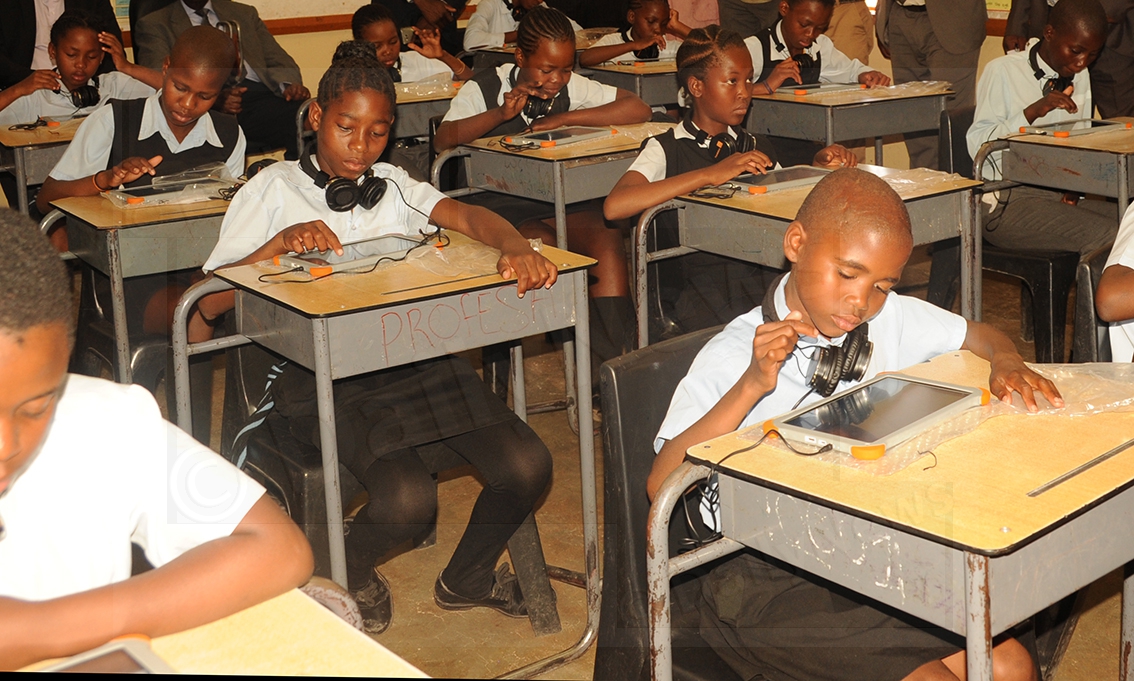More educators receive laptops
14 Nov 2024
Over 20 000 educators have received laptops or individualised gadgets in the Phase 2 of the School Digitisation Exercise.
In Phase 1 of the project, 52 161 individual gadgets were distributed to 34 secondary schools.
In an interview, Permanent Secretary in the then Ministry of Education and Skills Development, Ms Bonolo Khumotaka said 4 585 teachers received individual gadgets, 51 to Trainers of Trainers in the 10 regions of the ministry.
She said 15 410 laptops were allocated to teachers in junior secondary schools as well as lecturers in Technical Colleges, Colleges of Education, Institute of Health Sciences (IHS) and Brigades in the Phase 2 rollout of the project.
The Permanent Secretary said schools with special needs learners, especially the visually impaired, among them Phatlhogo Primary School in Francistown, Matsieng Primary School, Linchwe Junior Secondary and Molefhi Senior Secondary School had been equipped with 160 Braille note takers and 66 text magnifiers.
She also said Tlokweng and Francistown Resource Centers were each furnished with six scan and read devices, two auto acoustic emissions hearing assessment machines.
She further said following high-speed Internet connectivity to 48 primary schools in Kweneng, the schools had been also provided with ICT mobile laboratory class sets and two teacher laptops.
She said the use of ICTs came in as an enabler for equipping learners with 21st century requisite skills to give them a competitive edge.
She also said technology provided teachers and learners with quick access to information including a vast amount of educational resources, enabling them to learn and stay informed about global trends and issues.
The Permanent Secretary said skills development such as technology fostered essential skills such as critical thinking, problem-solving, and digital literacy, which were vital in a competitive global job market.
She said with ICT skills, teachers and learners could collaborate and communicate through online platforms that also enabled learners to collaborate with peers from different countries, promoting cross-cultural communication and teamwork, which were key skills in today’s interconnected world.
She also said personalised learning allowed for individualised self-paced learning styles further allowing for learners’ engagement and retention.
She said the use of ICTs allowed for innovative learning methods such as online courses, virtual simulations, and interactive learning, which could deepen understanding and retention of knowledge.
She further said the use of ICTs in learning prepared for future careers because jobs required proficiency in technology adding that early exposure to ICTs helped learners gain experience with tools and software they would encounter in the workforce, giving them a more competitive edge.
Ms Khumotaka said ICTs provided economic opportunities such that equipping learners with the skills, the country could develop a more skilled workforce, which could in turn attract investors to drive economic growth and diversification.
She also said Trainers of Trainers (ToTs) were capacitated on ICT integration in teaching and learnt to cascade the training to school focal persons (SFPs) who in turn capacitated the rest of the teachers and learners.
She further said capacity building introduced teachers to Microsoft Office 365 that exposed them to the use of productivity tools including Word for typing, Excel or Spreadsheet for mathematical computations, PowerPoint for presentation, PowerBI for data analytics and Teams for virtual collaborations, collaborative teaching and meetings.
Ms Khumotaka said through their corporate social responsibility, different stakeholders continued to assist government with the rollout of ICT devices in schools.
She said that through a tripartite collaboration with the then Ministries of Education and Skills Development and Local Government and Rural Development, Orange Botswana continued to donate mobile labs in class sets of 50 for primary schools in the under-served communities.
She also said Botswana Regulatory Authority (BOCRA) had also connected all primary schools in Mabutsane, Kgalagadi, Gantsi, Kweneng and Good Hope to Wi-Fi.
She further said where they had connected schools to Internet; BOCRA had also employed Information Technology Officers under their payroll to provide user support in the primary schools and health facilities in the villages where they served. Ends
Source : BOPA
Author : GONTLE MERAFHE
Location : GABORONE
Event : Interview
Date : 14 Nov 2024







